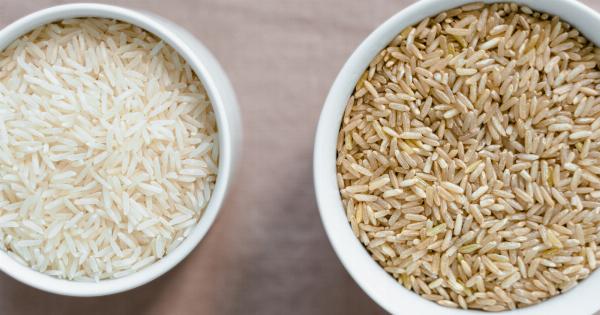When it comes to inflammatory bowel diseases (IBDs), such as Crohn’s disease and ulcerative colitis, the role of diet is complex.
While there is no one-size-fits-all diet for managing IBDs, certain foods have been shown to increase the risk of developing these conditions or exacerbating symptoms in individuals who are already affected. Here, we will explore some of the common culprits that can potentially contribute to the development and worsening of IBDs.
Sugar and Artificial Sweeteners
The excessive consumption of sugar and artificial sweeteners has been linked to various health issues, including increased inflammation in the gut.
Studies have shown that these sweeteners disrupt the balance of gut bacteria, leading to inflammation and an increased risk of IBDs. Cutting down on sugary foods and opting for natural sweeteners like honey or maple syrup can be beneficial.
Processed Foods and Trans Fats
Highly processed foods, especially those containing trans fats, can be detrimental to gut health. These foods often contain preservatives, additives, and unhealthy fats that can trigger inflammation and irritate the intestinal lining.
To reduce the risk of developing IBDs, it is important to limit the intake of processed foods and opt for whole, unprocessed alternatives.
Gluten and Wheat Products
Gluten, a protein found in wheat, rye, and barley, has been associated with gastrointestinal issues in some individuals.
For those who are sensitive or intolerant to gluten, consuming it can trigger inflammation and contribute to the development or worsening of IBDs. It is recommended for individuals with IBDs to consider a gluten-free diet or consult a healthcare professional for guidance.
Dairy Products
While dairy products provide essential nutrients, such as calcium and protein, they can also be problematic for individuals with IBDs.
Some people experience lactose intolerance or have sensitivity to dairy proteins, which can cause digestive issues and inflammation in the gut. Reducing or eliminating dairy from the diet may alleviate symptoms and reduce the risk of IBD flare-ups.
High-Fat Foods
Consuming high-fat foods, especially those rich in saturated fats, has been linked to increased inflammation and a higher risk of IBDs. These foods are often found in fried foods, fatty cuts of meat, and processed snacks.
Replacing saturated fats with healthier alternatives like olive oil, avocados, and fatty fish can help reduce inflammation and support gut health.
Alcohol and Caffeine
Excessive alcohol consumption can disrupt the delicate balance of gut bacteria and trigger inflammation in the digestive tract. Likewise, caffeine stimulates the production of stomach acid and can irritate the intestinal lining.
Limiting or avoiding alcohol and caffeine can be beneficial for individuals at risk of developing IBDs or those who already have these conditions.
Spicy Foods
Spices like chili peppers and hot sauces are known to aggravate digestive symptoms in many individuals, including those with IBDs. These foods can irritate the lining of the digestive tract and contribute to inflammation and discomfort.
Reducing the consumption of spicy foods, or avoiding them altogether, may help manage IBD symptoms.
High-Fiber Foods
While fiber is generally considered beneficial for digestive health, individuals with IBDs may need to be cautious with their fiber intake.
High-fiber foods such as raw fruits, vegetables, and whole grains can be difficult to digest for some people, leading to gas, bloating, and diarrhea. It is advisable to work with a healthcare professional to determine the optimal amount and type of fiber for those with IBDs.
Certain Fruits and Vegetables
Soluble fiber-rich fruits and vegetables, such as apples, peaches, and cruciferous vegetables (e.g., broccoli, cauliflower, cabbage), can trigger gastrointestinal symptoms in individuals with IBDs.
While these foods are generally considered healthy, they may need to be limited or cooked thoroughly to reduce the risk of worsening IBD symptoms.
Food Sensitivities and Personal Triggers
Individuals with IBDs often have unique sensitivities to specific foods. It is important to identify personal triggers through an elimination diet or working with a healthcare professional.
Common triggers may include spicy foods, citrus fruits, nuts, and certain grains. Recognizing and avoiding these triggers can significantly reduce the risk of developing or exacerbating IBD symptoms.



























